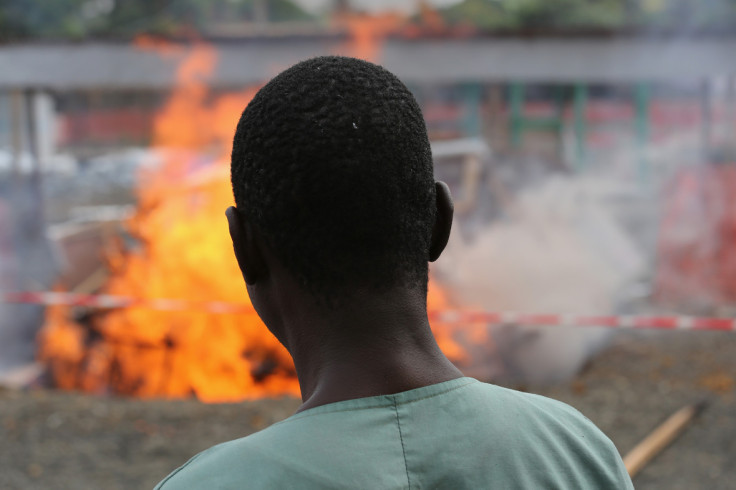Ebola outbreak slowing down: With only five confirmed cases in Liberia, life returning to normal
Liberia said that there are currently only five confirmed cases of Ebola in the entire country – a dramatic turnaround in the West African nation where the virus has taken its deadliest toll. The government believes it could be free of the virus by the end of next month.
At the height of the outbreak in August and September, Liberia was recording more than 300 new cases of the virus every week. To date 3,636 Liberians have died of Ebola, according to the World Health Organisation. But the outbreak has begun to wane. Now there are now just five people in the country being treated for Ebola, Tolbert Nyenswah, who heads the country's Ebola response, said.
Getty Images photographer John Moore, whose powerful pictures captured the sadness and fear of Liberians at the height of the crisis, has returned to the country as life begins to get back to normal.





The world's largest Ebola treatment centre, the ELWA-3 unit in Monrovia, is being dismantled. The 120-bed centre opened in August and was immediately overwhelmed, with staff turning patients away. Five months later it registered no patients at all.

In her state of the nation address this week, President Ellen Johnson Sirleaf said that, at the height of the outbreak, Liberia was the "poster child of disaster".
"Our hospitals and clinics as well as our schools closed down. People ran away from their families and homes. Our economy was on the verge of collapse," she told lawmakers, adding that the initial response from Liberia and the international community was weak.
"I can say today that despite all of this that our nation has remained strong, our people resilient," said Sirleaf.





Sierra Leone and Guinea – also hammered by the disease – have also seen a dramatic reduction in cases.
Dr. David Nabarro, the UN special envoy on Ebola, said: "The change in behaviour that we've been hoping for, working for, anticipating, is now happening everywhere. Safe burial teams are providing safe and dignified burial services and the result is that we're seeing the beginnings of the outbreak slowing down."
The disease is spread through contact with bodily fluids of infected people or the highly contagious body of someone who has died of the virus. Nabarro said burial practices that involved people touching and cleaning bodies of Ebola victims had helped fuel the outbreak.
"Death-related practices in the region had been responsible for a quite dramatic spread of the virus," said Nabarro. He said that as people realized the dangers they adopted safer behaviors that led to a drop in infections.
Families in Liberia are no longer required to cremate the remains of loved ones to halt the spread of the virulent disease. Ebola victims can now be buried in a dedicated cemetery where burial teams wear protective clothing.
Families are permitted to view the burials, important in Liberian culture. The enforced cremations often further traumatised surviving family members, unintentionally encouraging many families to hide their dead for secret burials.






The worst epidemic of the virus on record has infected about 21,200 people in Liberia, Sierra Leone and Guinea, killing more than 8,600, since it was detected in March.
The outbreak has not killed as many people as some predictions. At its height, one estimate warned that as many as 1.4 million people could become infected by mid-January.
© Copyright IBTimes 2025. All rights reserved.






















